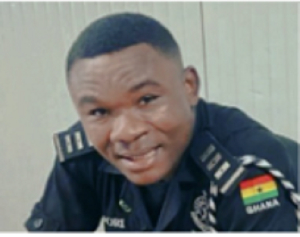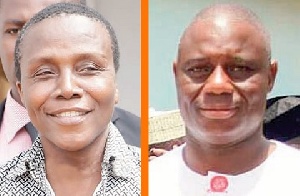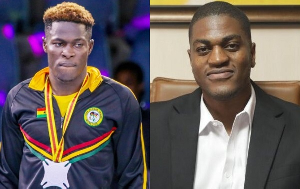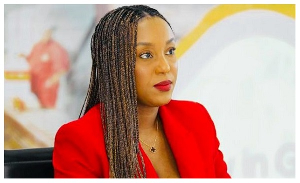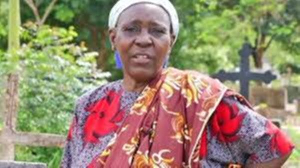When I visited Somalia in 2022, I said to myself, “The horrifying stories on account of political and religious extremism must not go untold,” especially when electoral violence keeps on intensifying within the fourth republic of our dear nation, Ghana.
Whilst many Ghanaians may be unaware of elections as a breeding ground for
conflict and nectar for extremist groups, others, especially those in power, insulate themselves from potential conflict ahead of every election. Thus, Kwasi Amakye-Boateng observes that “in recent elections, the middle class and political elites have developed contingency plans, including escape routes and safe houses, in anticipation of potential violence and instability.”
Akua Dansua also shares that in 2013, as the Supreme Court prepared to deliver its verdict on the election petition, many Ghanaians were bracing themselves for the worst; some started stockpiling food and water, booking airline tickets, and stockpiling up on fuel.” And per Nana Darkoah Sekyimah, “there is always an undercurrent of desperate, unspoken hope that there will be no post-election violence, or if there is, it should not escalate.”
Sekyimah brings us closer to the fact after each presidential inauguration, there is always unspoken relief that the worst did not happen.” Therefore, as one writer rightly observes, “it has become notorious fact in Ghana that impending elections are synonymous with potential dangers.”
Notwithstanding, as key players in elections, we have a sacred duty of care to protect the integrity of the electoral process and ensure the well-being of citizens.
Critical Issues:
The combination of politicians’ divisive speech, the media's distortions, and electoral irregularities is a dangerous brew that continues to pose a significant risk of violent eruptions. In the book entitled The Media and the Rwandan Genocide, Allan Thompson highlights that the media in Rwanda fueled the Rwandan genocide.
Accordingly, popular radio and TV stations broadcast hateful and inflammatory
messages, targeting the Tutsi minority and moderate Hutus. The stations were
owned by the Hutu extremists and were used to spread propaganda and incite
violence. Also, media outlets created a sense of fear and panic among the Hutus.
convincing them that they were under treatment from Tutsis and needed to take action to protect themselves.
Thus, the international community widely condemned the role of bad media reporting in fueling the Rwandan genocide, recognizing it as a significant
factor in the violence that resulted in the deaths of over 800, 000 people. One major problem is that vulnerable groups, such as children, bear the brunt of violence, suffering physical, emotional, and psychological scars, robbing them of their childhood and future.
Notwithstanding, politicians who have never experienced the brutality of war are often the first to call for it, ignorant of the suffering they would inflict on themselves and others. And the ease with which these politicians advocate
for war to address injustices stems from their lack of understanding of the destructive power of conflict and its lasting impact on humanity.
Regrettably, youth have been a tool in the hands of politicians to perpetuate electoral violence. Young people have been coerced and mobilized to engage in electoral violence, serving as a means to an end for political actors who exploit the energy, idealism, and vulnerability of youth for their own political interests.
The Political Situation in Ghana:
The writing is on the wall: political divisive speech is on the rise, and its harmful consequences for our society are inevitable if left unchecked. In an article cited on GhanaWeb dated April 13, 2019, The Chairman of the Church of Pentecost, Apostle Nyamekye called on Ghanaians to end the antagonistic politics being practiced in the country, which, according to him, is derailing the development of the country.
The respected clergy observed that partisan politics has polarised the nation as people attack and insult their perceived political opponents, despite the fact that they are all Ghanaians. Prior to the December 2020 elections, the National Peace Council (NPC) equally urged political parties to refrain from violence and divisive acts and utterances that could threaten the peaceful conduct of elections and the preservation of Ghana’s reputation as a stable democracy.
In another article cited on myjoyonline dated November 18, 2023, Catholic bishops warn against divisive politics of religion, urging citizens to prioritise Ghana’s unity. The bishops, drawing on the wisdom years, admonished against allowing religious fervour to become a divisive force in the political discourse. In another article cited on Ghana News Agency, dated May 20, 2024, entitled Drawing Religion into Politics: Dangerous Development, the chairperson of the National Commission for Civic Education (NCCE) appealed to the media not to propagate political messages that fuel religious intolerance ahead of the 2024 general elections.
The Commission observes that religious intolerance and divisiveness in political campaign messages are dangerous and urges the citizenry to disregard political actors who promote such deeds. The above references, though succinct, affirm that political divisiveness is a pressing issue in Ghana, and they present a life-threatening challenge.
In Ghana, the majority of media houses have abandoned their neutral ground and instead chosen to wear political party colours, eroding public trust and undermining their credibility. These media houses present information in a way that favors their political, ideological, or cultural perspective, and most consumers of these biased media outlets have developed skewed views, reinforcing existing beliefs and generating a lot of misunderstanding and tension. Fake news continues to manipulate the emotions of citizens, and it continues to influence decisions, opinions, and behaviors, leading to confusion and polarization.
However, the lack of regulation poses a serious challenge to regulating digital media in particular. Unfortunately, while many media houses loudly proclaim their right to press freedom, they often whisper about their responsibility to report accurately and truthfully, and per the world’s press freedom index, Ghana moved from 78.67 points in 2021 to 67.7 points in 2024, calling the tolerance of the political regime into question.
Electoral irregularities and their significant political and social upheaval cannot be relegated. In a post cited on myjoyonline dated December 20, 2023, the Coalition of District Election Observers (CODEO) expressed disappointment with the Electoral Commission for failing to ensure the smooth and efficient conduct of the district election. CODEO explained that there were technical difficulties with the ballot machines and problems with the printing of ballot papers, particularly in the Ashanti and Eastern regions, which led to the postponement of the elections.
Also, a 2024 AFRO Barometer report indicates that even though Ghanaians want fair and competitive elections, they mistrust the electoral process. Per the report, trust in the electoral process has seen a significant decline, from 75% in 2005 to 33% in 2022. In 2022, 33% of the respondents trusted the electoral commission to some extent, while 67% trusted the commission a little or not at all. One cannot deny the fact that the widespread distrust in the electoral commission and processes has accounted for the series of protests and demonstrations.
Over the years, Ghana has witnessed the heartbreaking spectacle of youth being
maimed or killed in the midst of political violence and clashes, a stark reminder of the human cost of conflict. However, while local youth are weaponized and sacrificed for political gain, the children of politicians enjoy the best education abroad, highlighting the ridiculous double standard of those who claim to lead and serve. An article cited on GhanaWeb titled Man Who Lost an Eye in Let My Vote Count Demo Dies, dated May 13, 2019, is illuminating.
Subsequently, in a publication cited on Adomomline, dated April 11, 2024, the Vice President and Flagbearer of the New Patriotic Party, Dr. Mahamudu Bawumia, admonished the youth not to allow themselves to be used as conduits for electoral violence.
Ballots or Bullets?:
Somalia taught me one important lesson: the cycle of political conflict can be
unforgiving, ensnaring even those who initially instigated it. The destructive power of war has crippled the telecommunication and media networks, leaving people isolated and disconnected from the world. Currently, there is only one mobile network and radio, Hormuud Telecommunication, which has started to lead Somalia's digital evolution.
The political arena is frequently a battleground, with politicians being targets of war and political conflict. For example, while I was in Somalia, on July 29, 2022, the Minister of Justice in the South West State of Somalia, Sheikh Hasan Ibrahim, was killed along with his son moments after leaving a mosque by members of the Al-Shabaab terrorist group in Baidoa, Somalia. Despite the relative calm in Somalia, and in spite of the fact that citizens commute freely about their economic activities, politicians remain a prime target for armed groups.
Also, despite robust security measures and surveillance, locations where politicians gather remain vulnerable to the threat of Improvised Explosive Devices (IEDs), a reminder of the unrelenting aggression from terrorist groups against politicians. Reports indicate that the Somali war has displaced a large number of people, with more than 1 million people internally displaced in 2023 alone. The conflict has resulted in a significant number of asylum seekers and refugees living in neighbouring countries, with the majority being hosted
by Kenya, Ethiopia and Uganda.
In 2022, I attended a conference in Mogadishu, the capital, dubbed “Children not
Soldiers”. In that conference, it was shared that Al-Shabaab militants have recruited children as soldiers, with some being used as human shields. My inquiry from some Somali civilian employees also disclosed that the protracted conflict in Somalia has created a lost generation of children who are struggling to cope with the physical and emotional toll of trauma, malnutrition, and displacement.
The lethal consequences of political conflicts on a nation are glaring, and based on this, one may want to ask: will the youth of Ghana continue to be pawns in the game of political violence while the children of politicians enjoy the luxury of expensive cars and a life of privilege?
And to our dear politicians, when your legacy is written, will you be remembered as a champion of peace and justice or a source of violence and division? To the electoral commission, who are guardians of the democratic process, do you want to be remembered as enablers of peace and fairness or instruments of cruelty and oppression? And to the noble media houses in Ghana, how do you reconcile your narratives with the harmful rhetoric and propaganda that fuelled the Rwandan Genocide, leading to the deaths of over 800,000 people? And, to all Ghanaians, being armed with this information, are we choosing bullets over ballots?
Opinions of Friday, 31 May 2024
Columnist: Inspector Akwasi Ofori





